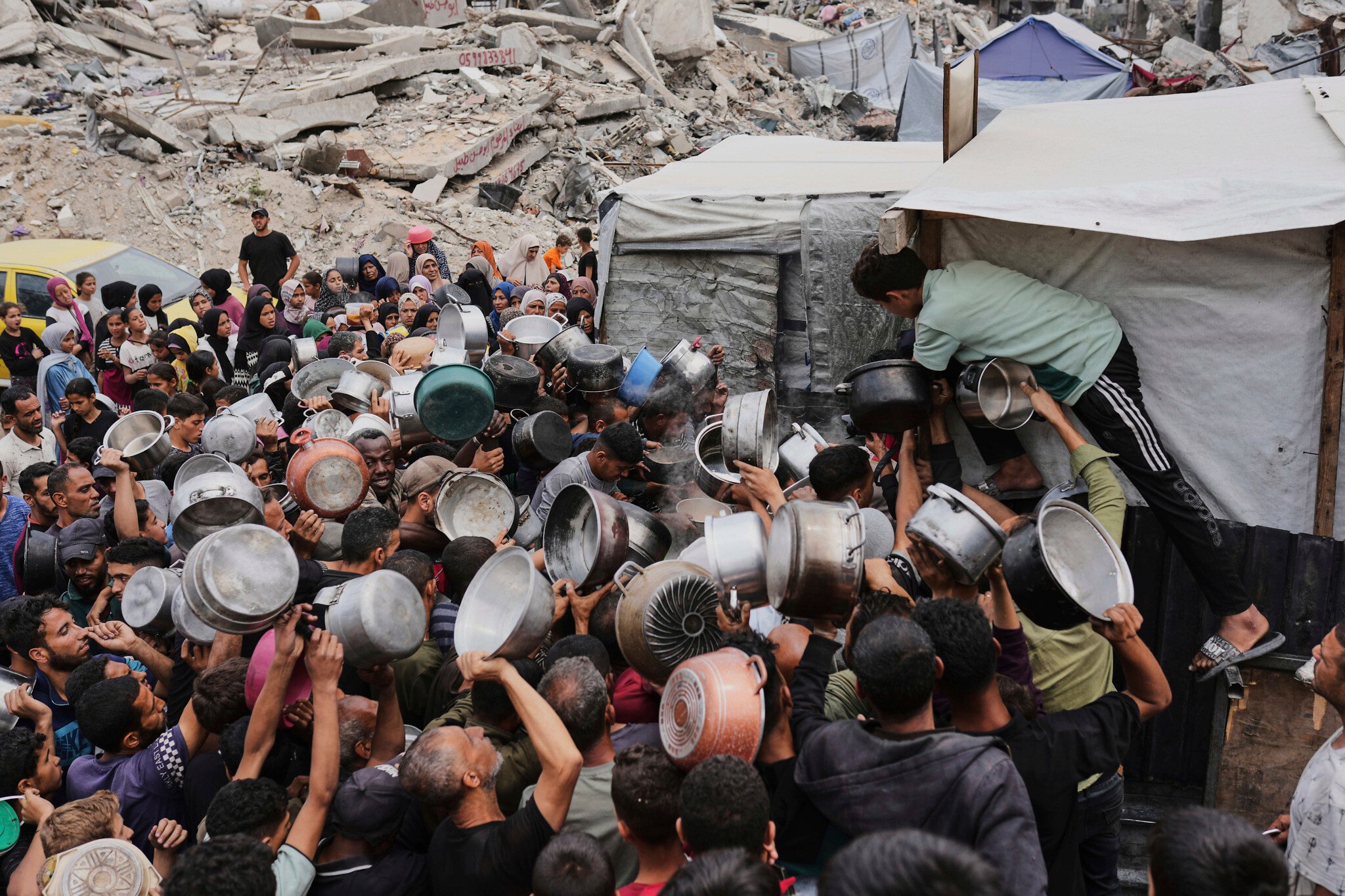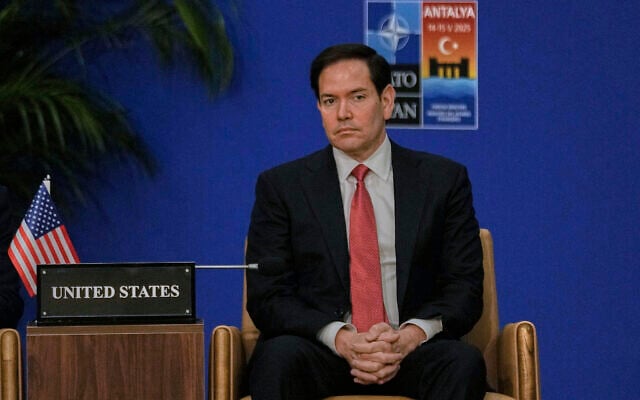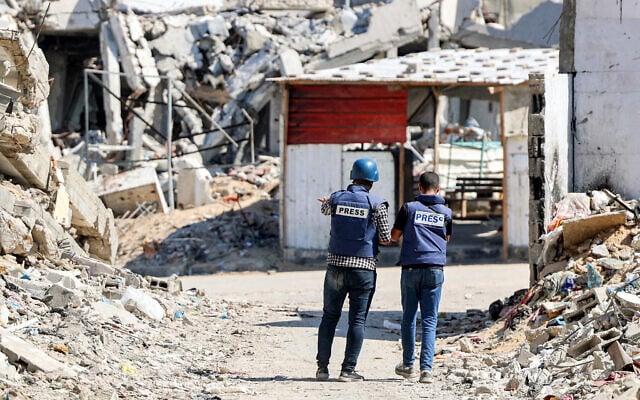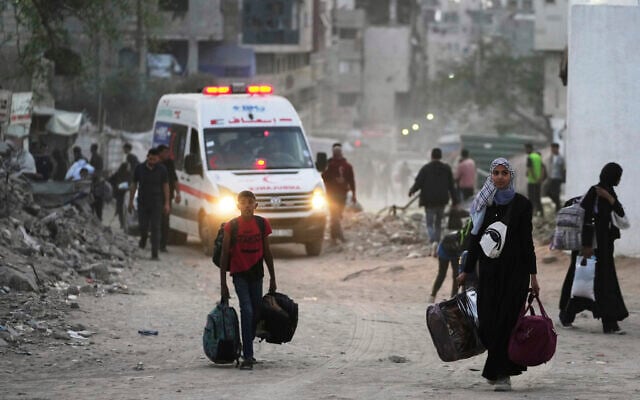



US Secretary of State Marco Rubio said Thursday he was “troubled” by the humanitarian situation in Gaza amid a nearly two-and-a-half-month-long Israeli blockade on aid entering the Strip.
Rubio avoided criticizing Israel for the blockade while taking questions from reporters in Antalya, also revealing that he had spoken earlier in the day with Prime Minister Benjamin Netanyahu. He didn’t go as far as to say that he had pressed Netanyahu on the issue, and a subsequently issued State Department readout on the call didn’t mention the matter at all.
Aid hasn’t entered Gaza since March 1, with Israel arguing that sufficient humanitarian assistance entered the Strip during a six-week ceasefire and that Hamas has been stealing much of that aid. In recent weeks, though, officials in the Israel Defense Forces have begun warning the political echelon that the enclave is on the brink of starvation.
On April 25, US President Donald Trump told reporters that he had pressed Netanyahu to allow food and medicine into Gaza. On May 5, Trump said Gazans were “starving” but that Hamas has made it “impossible” to get aid into the Strip.
In an attempt to get around the terror group, Israeli officials were closely involved in the establishment of a new organization called the Gaza Humanitarian Foundation (GHF), advancing a new initiative where aid will only be distributed from a small number of sites in southern Gaza that are secured by American contractors. Only pre-approved representatives will be allowed to pick up food once every other week from the distribution sites before carrying the boxes to a separate part of a newly established humanitarian zone surrounding the flattened city of Rafah.
Aid organizations currently operating in Gaza have come out strongly against the GHF plan, arguing that it violates humanitarian principles, forces mass displacement of Palestinians who aren’t currently living near the humanitarian zone, ignores vulnerable populations and doesn’t adequately address the humanitarian crisis.
“I’ve heard criticisms of that plan. We’re open to an alternative if someone has a better one,” Rubio said, in what did not appear to be a strong endorsement of GHF, which a day earlier issued its inaugural statement.
“We are for all the aid we can get… without Hamas being able to steal it from people,” Rubio added, asserting that the conflict in Gaza would end if Hamas surrendered.
“We’re not immune or in any way insensitive to the suffering of the people of Gaza,” the secretary insisted.
“There’s a plan out there that’s been offered — that’s been criticized by some — but it allows people to get aid without Hamas stealing it. And we’ll continue to work toward that in ways that we think are constructive and productive,” he added.
Trump officials haven’t just provided rhetorical backing to GHF, they have met in recent days with representatives from UN agencies and other international aid organizations, pressuring them to cooperate with the initiative and, in at least one case, threatening to cut funding from groups that refuse.
On Wednesday, GHF announced that it would begin operating in the enclave by the end of May and that Israel would lift its over two-month blockade in the interim.
As of Thursday night, though, there was still no Israeli confirmation of the latter move. An Israeli official told The Times of Israel on Tuesday that an announcement would be made in the coming days.
GHF said in its inaugural Wednesday statement that it had asked and received Israeli approval for additional “Safe Distribution Sites” (SDSs) to be established throughout Gaza after the group received flak for an earlier memo revealing that it would initially only be able to feed 60% of Gaza’s population of roughly 2 million at four sites.
The Wednesday statement didn’t say how many SDSs Israel agreed to build. As of last week, only one SDS was in the process of construction by the IDF.
The GHF statement also did not address who would fund the initiative.
Last week, an Emirati official informed Israeli counterparts that Abu Dhabi would not bankroll the initiative as it currently stands. The rejection marked a major blow to GHF, as Israel hoped that Emirati support would help convince other countries and international organizations to follow suit.
If Hamas does not agree to release more hostages under a new ceasefire deal, Israel plans to launch a massive military operation as early as Friday that aims to reoccupy and permanently hold onto the entire Strip, while squeezing the entire population into a small humanitarian zone in the southern Strip that makes up less than a quarter of the enclave’s territory.
Agencies contributed to this report.



